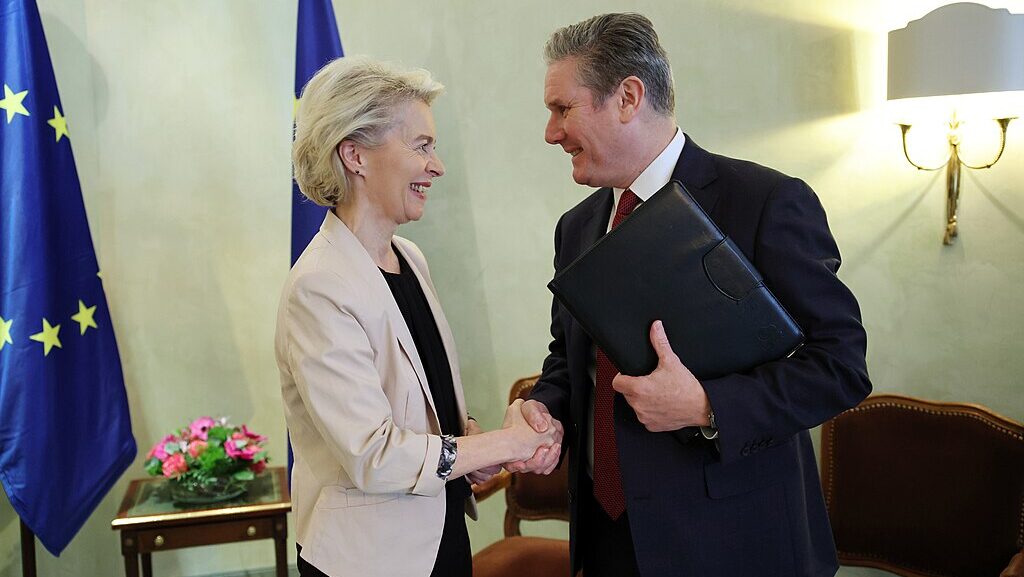News that London and Brussels will publish a new declaration highlighting their commitment to “free and open trade” shouldn’t come as much of a surprise given that they signed a post-Brexit free trade agreement almost half a decade ago.
What is more concerning is the section in a leaked document recommitting the pair to “multilateralism,” including through support for the European Convention on Human Rights (ECHR).
Britain’s membership of this convention is a major block to supposed efforts to tackle Channel crossings, with illegal migrants successfully appealing to it in order to stay in the country after committing crimes. In one now infamous case, the removal of a criminal Albanian migrant was blocked because of his child’s distaste for the “type of chicken nuggets that are available abroad.”
Such assaults were always bound to continue under Labour Prime Minister Keir Starmer after he said he would “never” allow Britain to withdraw from the ECHR. But a recommitment to the convention as part of a “new strategic partnership” with the European Union could also make it more difficult for future governments with serious intentions to control national borders to pull out.
Reports say the declaration will also recommit the UK to the United Nations, which Israel this week accused of weaponising international law “in order to deprive the most attacked country in the world—Israel—of its most basic right to defend itself.”
The agreement has been drawn up ahead of a summit in London on May 19th, and is seen as a response to Donald Trump’s levying of reciprocal tariffs. Leaders are also expected to discuss increased UK-EU military alignment, which Reform’s Nigel Farage worries could “fundamentally damage our relationship with NATO and America.”
Brexiteer John Redwood also said that a “sell out deal with the EU” as opposed to a firmer free trade agreement with America “will tie us in more tightly to slow growth and no growth Europe,” warning elsewhere that adopting more Brussels rules “will reinforce the dominance of food imports from the continent at the expense of jobs and output at home.”
